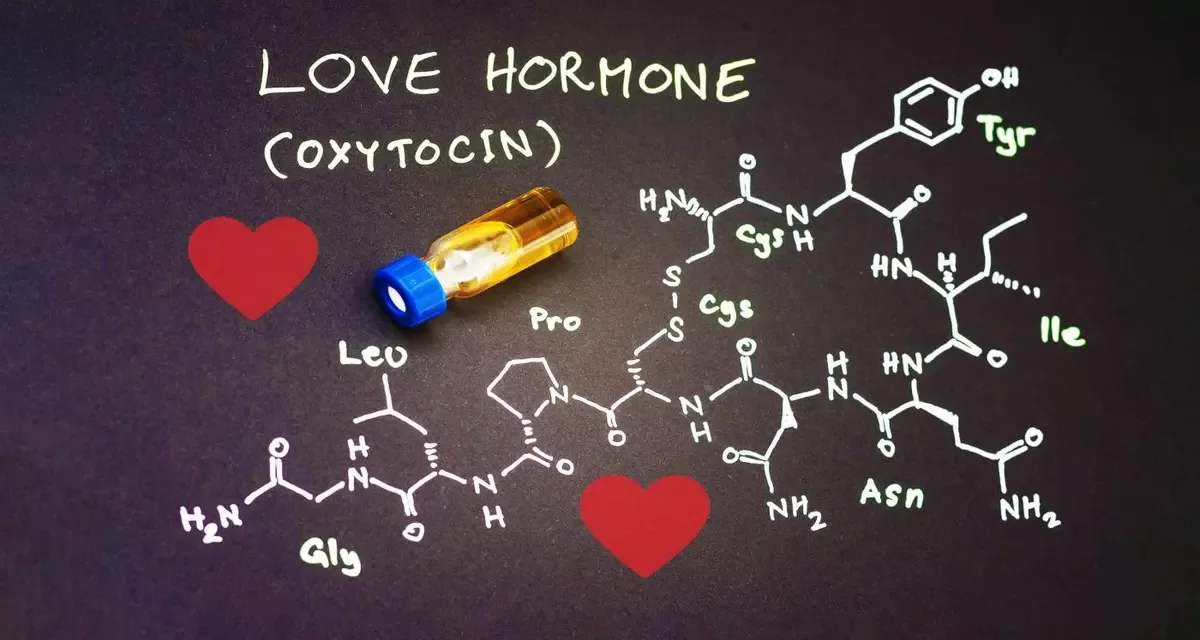November 16, 2024
When we think of oxytocin, images of warm embraces or the deep bond between a mother and her child often come to mind. Dubbed the “love hormone” or “cuddle hormone,” oxytocin is renowned for its role in building emotional connections, fostering trust, and promoting empathy. But emerging research suggests that oxytocin is much more than just a feel-good hormone—it may hold the key to tackling addiction and improving memory, offering new hope for treating conditions like dementia and opioid dependence.
Oxytocin’s Role in Memory
Oxytocin has long been associated with social behaviors, but its influence on cognitive functions, particularly memory, is a newer area of exploration. Led by Professor Akiyoshi Saitoh and researcher Junpei Takahashi from the Tokyo University of Science, along with Meredith Berry, Ph.D., from the University of Florida, a recent study explores how oxytocin might enhance memory and learning processes.
Previously, Saitoh’s team suggested that oxytocin could be a promising candidate for treating dementia. Their latest study, conducted on mice, aimed to investigate whether the hormone plays a crucial role in memory formation and retention.
“Previous studies indicated that oxytocin could be a new therapeutic avenue for dementia,” Professor Saitoh explained. “In this study, we sought to understand its impact on cognitive functions.”
Using advanced techniques to stimulate oxytocin neurons in specific regions of the brain, the researchers observed changes in the mice’s memory performance, particularly in long-term memory tasks. In the Novel Object Recognition Task, which measures an animal’s ability to recognize a new object, the mice demonstrated significant improvements in long-term memory, suggesting that oxytocin could influence how memories are formed and retained.
Implications for Dementia Treatment
These findings have significant implications for treating dementia, including Alzheimer’s disease, which causes severe memory loss and cognitive decline in millions of people worldwide. By better understanding oxytocin’s role in memory, researchers hope to develop new therapies that could slow the progression of these conditions.
Additionally, this research could help explain why loneliness and social isolation tend to accelerate the progression of dementia. “Dementia often worsens more rapidly in individuals who experience loneliness or limited social engagement,” Saitoh noted. “Our study suggests that stimulating social interactions or targeting oxytocin pathways might help alleviate some of these effects.”
Oxytocin and Opioid Addiction
Another groundbreaking area of research focuses on oxytocin’s potential in combating opioid addiction. The opioid crisis remains a major public health issue, with opioids contributing to widespread addiction and overdose deaths. At the University of Florida, Meredith Berry, Ph.D., and her team are investigating whether synthetic oxytocin could help reduce opioid dependence.
In their study, Berry and colleagues explore whether oxytocin, when combined with opioids for acute pain management, could reduce the likelihood of addiction. “Our goal is to see if oxytocin can effectively manage pain while simultaneously reducing the desire for long-term opioid use,” Berry explained.
Opioids: A Growing Concern
Opioid addiction, particularly in older adults who require pain relief, continues to be a pressing concern. Prescription opioids, while effective for pain management, carry a significant risk of dependence. Researchers like Dr. Berry hope that by pairing opioids with oxytocin, they can create a treatment option that offers pain relief while minimizing the risk of addiction.
Oxytocin’s natural ability to promote well-being and alleviate stress could counteract some of the reinforcing effects of opioids, making it a promising tool in addiction treatment.
Healing Addiction with Oxytocin
In their clinical trials, the University of Florida team is working with participants aged 55 to 85 who have a history of opioid use. These participants will be given either synthetic oxytocin via nasal spray or a placebo after taking oral oxycodone. The researchers will monitor various factors, including pain levels, emotional reactions, and cognitive responses, to determine whether oxytocin can reduce opioid cravings and enhance the effectiveness of pain management without increasing the risk of addiction.
A Potential Wonder Drug
As researchers continue to explore oxytocin’s potential, it’s clear that the hormone’s applications extend far beyond its role in social bonding. From boosting memory and fighting dementia to offering a new approach to opioid addiction, oxytocin is emerging as a versatile and powerful tool in medicine.
The growing body of research underscores the importance of rethinking the potential of well-known substances. Oxytocin’s journey from a simple “love hormone” to a potential medical powerhouse is a testament to the ever-evolving nature of scientific discovery.
As researchers like Professor Saitoh and Dr. Berry continue their work, the future looks bright for oxytocin-based therapies that could transform the way we treat memory loss, addiction, and even pain management.











